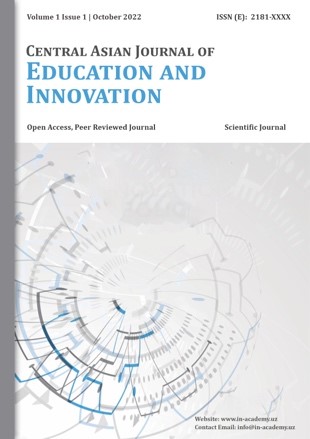EFFECT OF PRIOR KNOWLEDGE ON GOOD AND POOR READERS’ MEMORY OF TEXT
Main Article Content
Аннотация:
This research paper examines the effect of reading skills on the retention of text in students of different levels. The study looked at how the prior knowledge of good and poor readers affects text processing and recall. The article shows that good readers can effectively use their prior knowledge and remember the text better and more accurately, while poor readers have difficulties to use their prior knowledge properly. Research findings highlight the importance of providing students with the support and guidance they need to develop reading skills.
Article Details
Как цитировать:
Библиографические ссылки:
Anderson, R. C., & Pearson, P. D. (1984). A schema-theoretic view of basic processes in reading comprehension. Educational Psychology Review, 2(4), 255–291.
Alexander, P. A., & Jetton, T. L. (2000). Learning from Text: A Multidimensional and Developmental Perspective. In R. Barr, M. L. Kamil, P. B. Mosenthal, & P. D. Pearson (Eds.), Handbook of Reading Research (Vol. 3, pp. 285-310). Mahwah, NJ: Lawrence Erlbaum Associates.
Goodwin, A. P., & James, K. (2009). The Effects of Reading Strategies on Comprehension and Recall: A Meta-Analytic Review. Journal of Literacy Research, 41(4), 345-371.
Motsch, M., & van der Meer, G. (2005). Knowledge and Memory: The Real Story. Lawrence Erlbaum Associates.
Siegler, R. S. (1998). Children's Thinking. Upper Saddle River, NJ: Prentice Hall.
Pearson, P. D., & Fielding, L. (1991). Comprehension Instruction. In R. Barr, M. L. Kamil, P. Mosenthal, & P. D. Pearson (Eds.), Handbook of Reading Research (Vol. 2, pp. 815-860). Mahwah, NJ: Lawrence Erlbaum Associates.
Pressley, M., & Afflerbach, P. (1995). Verbal Protocols of Reading: The Nature of Constructively Responsive Reading. Lawrence Erlbaum Associates.

